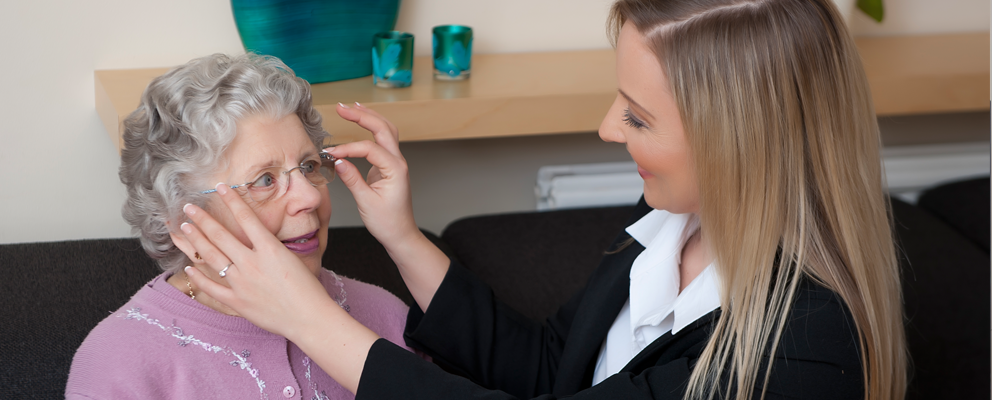mak-yuh-luh:An oval yellow spot near the centre of the retina, responsible for our colour vision & central vision.
AMD is the greatest cause of vision loss in people aged over 60.
There are 2 Types of Macula Degeneration
DRY AMD: This is the most common form of the condition, where the macula gradually deteriorates due to the ageing process. Degeneration is gradual and slow. Although there is no cure for this type of AMD, recent research suggests minerals such as Zinc, Leutin and anti-Oxidants can help keep the macula healthy. These minerals are available in vegetables such as Spinach, Brocolli and Green Peppers as well as supplement form.
WET AMD : This is a rarer form of AMD where delicate new blood vessels start to grow from under the macula and leak, causing a build up of fluid. Wet AMD can progress quickly and results in sudden vision loss. Early detection and medical treatment is vital in order to offer any chance of controlling the effects of wet AMD.
Effects of AMD
AMD results in the loss of central vision. Peripheral vision usually remains unaffected and therefore does not lead to total blindness.
In the beginning with only mild degeneration in one eye, symptoms may go unnoticed as the good eye makes up for the weaker eye. Symptoms experienced with AMD include:
- Reduced central vision
- Wavy / distorted straight lines
- Problems judging distances
- Deterioration in colour vision
- Poor vision in poor light
CAUSES OF AMD
The following factors can increase the risk of AMD :
| Age: | AMD is more prevalent in the older population. |
| Gender: | AMD is more common in Women than Men. |
| Genetics: | Variations & deficiencies in certain genes have been found in many cases of ARMD patients. |
| Smoking: | Smoking can increase the risk of AMD and quitting smoking can reduce the risk of AMD. |
| Sunlight: | Some researchers have shown a link between UV light and AMD. |
| Nutrition: | As mentioned above, some minerals play an important role in maintaining the health of the macula. |
If spectacles are no longer adequate in correcting vision, low vision aids such as magnifying glasses and telescopes may provide more benefit in helping to use remaining vision for certain tasks. Your Optometrist can suggest other techniques and aids which are designed to help you continue with your day to day activities as much as is possible.
If you notice any changes in your vision it is very important that you speak to an Optometrist or your GP immediately.


